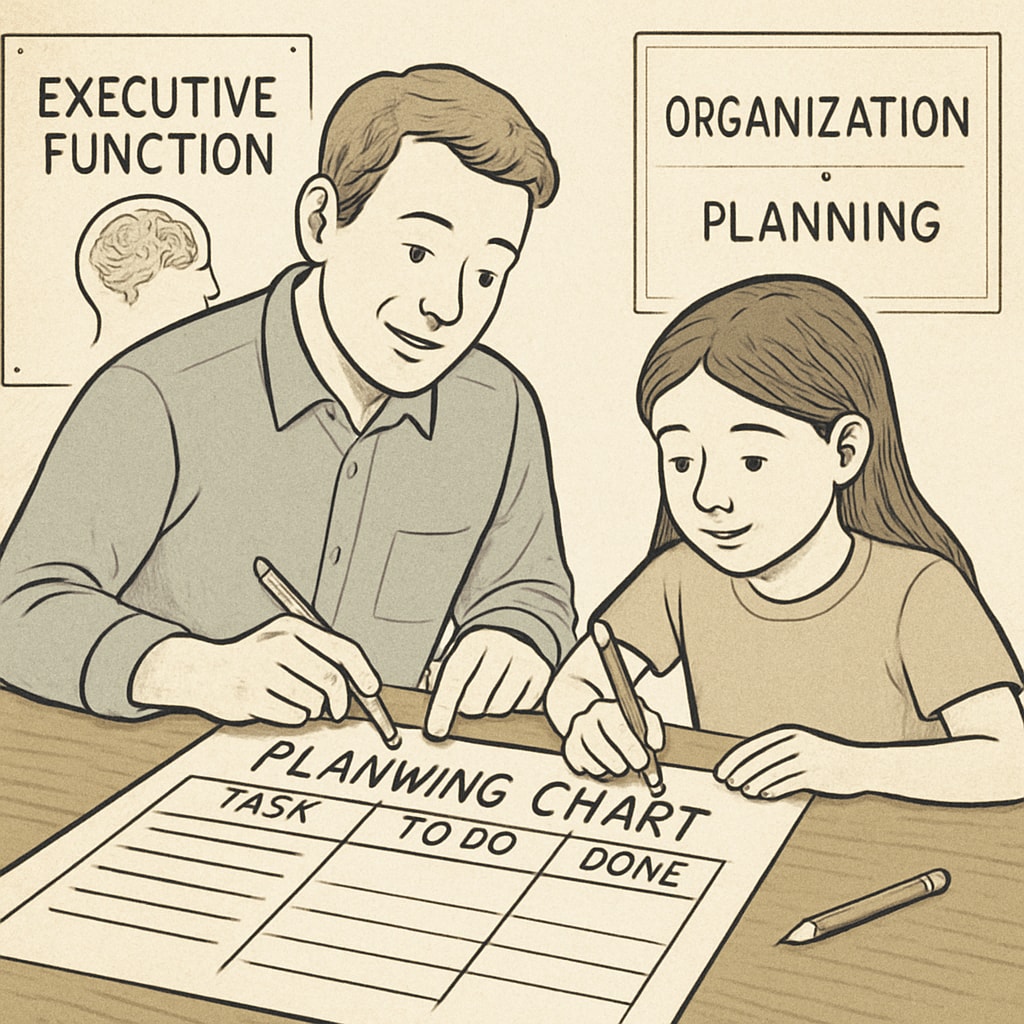Children with special needs, including those with ADHD (Attention-Deficit/Hyperactivity Disorder) or ASD (Autism Spectrum Disorder), often face challenges in developing executive function skills. These cognitive processes, such as planning, organizing, and self-regulation, are crucial for academic success and daily life. However, with the right strategies, parents can play a pivotal role in fostering these skills and creating a supportive environment for their child’s growth.

The Importance of Executive Function in Special Needs Education
Executive function refers to a set of mental skills that help individuals manage time, focus attention, and control impulses. For children with ADHD or ASD, difficulties in these areas can lead to frustration in school and at home. According to research, improving executive function can enhance a child’s ability to learn independently and navigate social situations more effectively.
For example, children with ADHD may struggle with time management, while those with ASD might find it challenging to adapt to changes in routines. Addressing these challenges early can help mitigate their long-term impact on a child’s academic and personal life.
Parents can begin by identifying their child’s specific executive function deficits and working on targeted strategies to address them. Partnering with teachers and therapists can also help ensure a consistent approach.
Strategies for Developing Executive Function Skills
While every child is unique, there are several evidence-based techniques that parents can use to develop executive function in special needs children:
- Create Routine Charts: Visual aids, such as charts or planners, can help children understand daily schedules and reduce anxiety about transitions.
- Use Timers: Teaching time management through timers or alarms helps children stay focused on tasks within a set timeframe.
- Break Tasks into Steps: Simplify complex activities into manageable steps to reduce overwhelm and encourage independence.
- Model Self-Regulation: Demonstrating how to handle stress or frustration calmly can help children learn to manage their emotions.
- Provide Positive Reinforcement: Reward systems, such as stickers or tokens, can motivate children to complete tasks and build confidence.
By incorporating these practices into daily routines, parents can provide a structured environment that nurtures their child’s executive function development.

Parental Support: The Key to Success
Parents are central to the success of any intervention aimed at improving executive function. Their consistent involvement, encouragement, and patience can make a significant difference in a child’s progress. Here are some ways parents can offer effective support:
- Collaborate with Educators: Work closely with teachers to set realistic goals and adapt classroom strategies to suit your child’s needs.
- Engage in Family Activities: Activities like board games or cooking can teach planning, problem-solving, and teamwork in a fun, low-pressure environment.
- Seek Professional Guidance: Therapists, occupational therapists, and special education experts can provide personalized strategies for your child.
- Practice Patience: Progress may be slow, but celebrating small victories can boost your child’s morale and encourage perseverance.
Additionally, self-care for parents is essential. Taking time to recharge ensures that you can provide the best support for your child without becoming overwhelmed.
Looking Ahead: Building a Bridge to Independence
The journey of raising a child with special needs is undoubtedly filled with challenges, but it is also an opportunity to celebrate their unique strengths. By focusing on executive function development and offering consistent support, parents can equip their children with the tools they need to succeed in school and beyond.
Remember, every child learns at their own pace. With patience, love, and the right strategies, you can help your child overcome obstacles and achieve their full potential.
For more information on executive function and related strategies, visit Executive Functions on Wikipedia or Executive Functioning on Britannica.
Readability guidance: This article uses short paragraphs, clear lists, and concise language to ensure accessibility for readers. Transition words such as “however,” “for example,” and “additionally” are incorporated to improve the flow of ideas.


